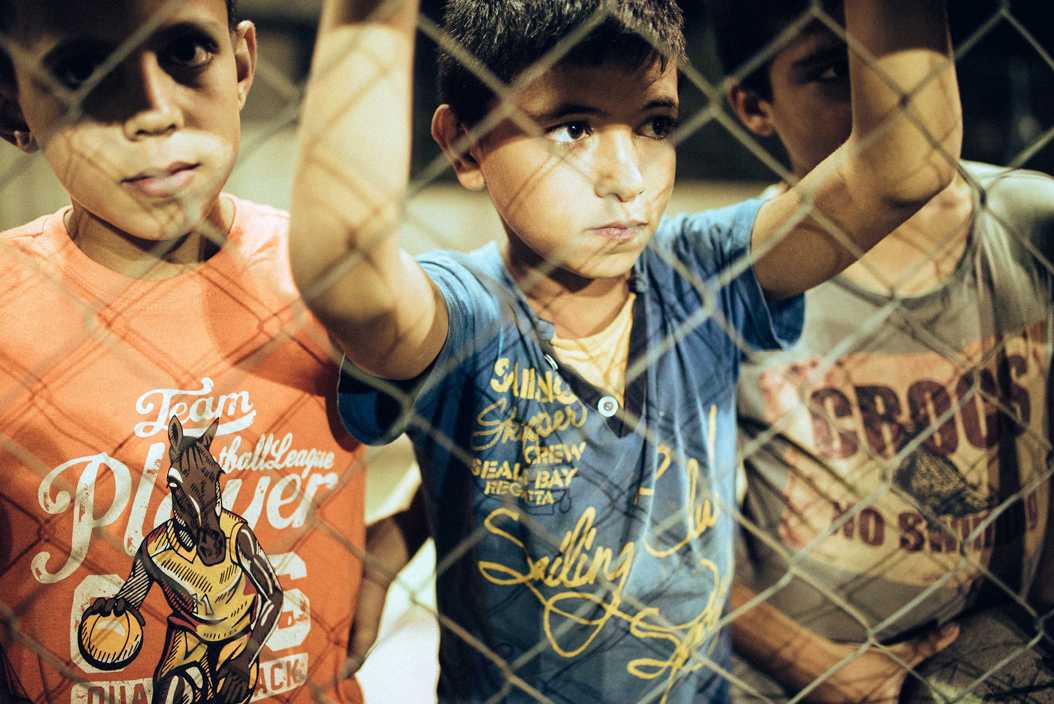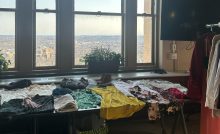From NYU Local: Palestinian youth LEAD the way


Photos Coming Courtesy of RJ Khalaf
This story was produced as part of Impact News Journalism Day. Read more stories like it at impactjournalismday-universities.com/read-our-stories.
“The first time I was offered a cigarette was by a 12-year-old Palestinian refugee named Odayee, in a refugee camp right out of Nablus called New Askar,” said 21-year-old R.J. Khalaf, founder of LEAD Palestine.
Born and raised in Las Vegas, Khalaf comes from a long line of Palestinians. His grandparents moved to the United States in 1964. When Khalaf was 10, he visited Palestine for the first time.
“I went there not knowing there was a place called Israel, not knowing there was an occupation, not knowing everything that has gone on there for decades.”
Three years later, he went back to volunteer at his uncle’s summer camp in Palestine and it was here that he began to imagine his own summer camp program.
—
LEAD Palestine is an initiative that aims to empower, motivate and inspire the next generation of Palestinian youth. Founded by two NYU undergraduate students, Khalaf and Hannah Benson, LEAD Palestine is a leadership camp for seventh and eighth graders living in New Askar, the refugee camp where Khalaf was offered his first cigarette almost a decade ago.
“I remember during the first week of my sophomore year,” Khalaf recalls, “I was pacing in front of Kmart talking to my mom on the phone and thinking, ‘How can I combine something I’m good at with something I’m passionate about?’ And I thought to myself, ‘Well, I’m good at leadership building but I’m really passionate about Palestinian refugees.’ The question at the time was, ‘How do I merge those two things?’”
For Khalaf and Benson, LEAD Palestine is a way of using their leaderships skills in service to their passion for Palestinian refugees.
The U.N. has done several reports about issues that young Palestinian youth face in the West Bank. The reports describe a general state of hopelessness and a general lack of empowerment among youth in these camps.
“Leadership empowers individuals,” reflects Khalaf, “If you can take an individual from having an external locus of control — one that allows them to look at their situations around them and think ‘There’s nothing I can do about this’ — then you have hopelessness. But if you can empower them with an internal locus of control — a belief that they can do something to address some of the issues around them—that’s powerful.”
LEAD Palestine has a three-pillar approach.
The first pillar consists of a summer day camp that will launch Aug. 14, 2017. The weeklong camp entails leadership-based activities and workshops led by born-and-raised Palestinian university students.
“They know what it’s like to grow up in that area and can speak to these kids at a level that you and I cannot,” said Khalaf.
Through these kinds of workshops, the camp aims to increase self-awareness and mindfulness and build a definition of leadership, spark collaboration, creativity and a general sense of teamwork.
The second pillar of this organization is a mentorship program. Palestinian camp counselors will continue to mentor the students long after the camp has ended and will be given a stipend, to reward them for their work with the youth and to incentivize them to continue to build and foster these relationships.
The third pillar of LEAD Palestine is the creation of a student council organization within the refugee camp to encourage children to be leaders for themselves, and for their community.
“Traditionally, these kids may have thought about leadership solely as a form of authority,” said Khalaf. “These leaders look like the president of Palestine or of the United States, and these kids don’t fit into that category of leadership.”
This is especially true for young women in the camp, who hardly fit the traditional image of an old, male leader.
“We can propose a different idea of leadership that is inclusive and that they can buy into,” Khala said. “One that focuses on self-awareness and emotional intelligence, being a leader for yourself, and building an inclusive community.”
LEAD Palestine recently reached its fundraising goal with the support of the NYU Liberal Studies’ program, the NYU Office of Civic Engagement and through the organization’s GoFundMe page.
Though funding is now in place, LEAD Palestine still faces challenges. Bureaucratic obstacles prevented the organization from working in the Gaza Strip, the place where they had hoped to set up camp.
“This was one of the biggest pills I had to swallow,” Khalaf said. “The Gaza Strip is where there are the worst problems and where there are the most unmet needs.”
LEAD Palestine had to relocate its programs to New Askar.
When asked if he had any anxieties about the program, Khalaf paused.
“I’m not scared of my safety and I’m not scared that we are not going to be prepared,” he said. “But I am scared that we are not going to be able to connect with these kids. I think they’re naturally pretty wary of people coming in from the outside to try and help them. The worst thing that can happen is we dump all this hope, make this connection and then leave after a week. So hopefully we can avoid such issues through the mentorship program.”
Though the founders are tentative to define long-form expansion goals for the organization before seeing if the camp is successful this summer, LEAD Palestine has clear dreams of what they hope their organization will achieve.
“What we hope is that in 10 years when these kids are the professionals, the activists, the business leaders, the teachers and the parents in their community,” Khalaf said. “We hope that they have this foundation of ethical leadership that can help them address some of the problems they might face.”
LEAD Palestine believes kids need to have a space and an opportunity to cultivate these skills.
“Kids are not born leaders,”Khalaf said. “Leaders are made.”
For more information on LEAD Palestine, check out its website: https://leadpalestine.com/
See a video here: https://vimeo.com/194151141
Recent Posts
‘He’s off to a much faster and better start’: Republicans reflect the second Trump administration’s first two months
Since Inauguration Day Trump’s second term has caused division amongst young Americans. Despite these controversies,…
Who Asked? // Why do we accept bad treatment from people?
This installment of Who Asked? by staff writer Brynn Murawski attempts to untangle the complicated…
What, Like It’s Hard? // Lean on your people
Contributing editor Livia LaMarca talks about leaning on your support networks and gives advice on…
Note to Self // Hot Girl Summer
In the sixth edition of Note to Self, Morgan Arlia talks about how she is…
A Good Hill to Die On // Down to Date and Time
In the latest version of “A Good Hill to Die On,” staff writer Sierra O’Neil…
‘Dress for Success: Closet to Career’ alleviates the stress of building a professional wardrobe
As the end of the spring semester rapidly approaches, many Pitt students find themselves in…

